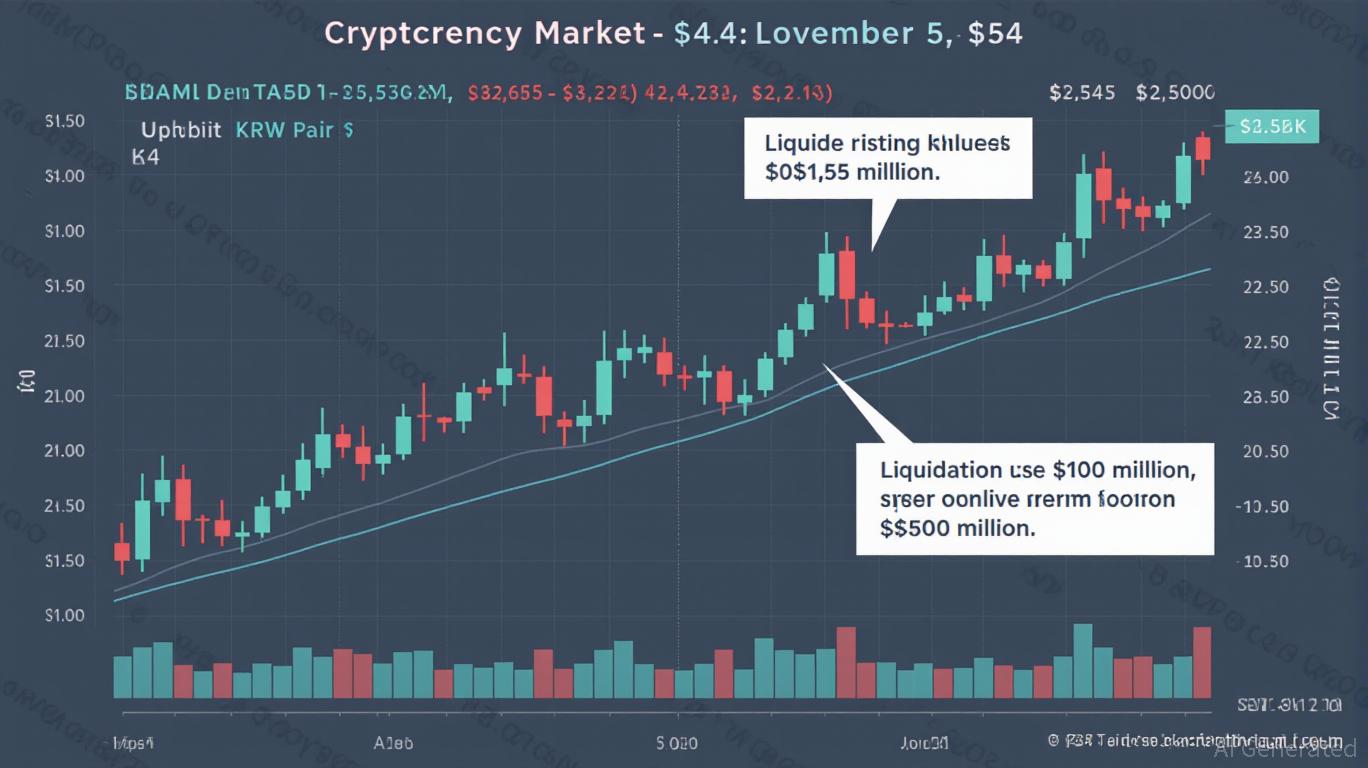Swiss and British Banks Collaborate to Build a Secure Tomorrow Using Programmable Blockchain-Based Deposits
- Swiss and UK banks launch blockchain-based programmable deposit pilots to modernize infrastructure and reduce fraud through tokenized transactions. - UK's 2-year GBTD pilot tests conditional payments, synchronized remortgaging, and DVP settlements with six major banks and Quant Network. - Swiss PoC leverages existing legal frameworks to tokenize deposits as digital payment instructions, enabling CHF 15 asset exchanges via smart contracts. - Both initiatives position tokenized deposits as regulated altern

Financial institutions in Switzerland and the UK have begun pilot projects for programmable deposits, utilizing blockchain to upgrade financial systems and boost payment effectiveness. Led by industry groups and leading banks, these pilots are investigating tokenized deposits to simplify transactions, minimize fraud, and enhance settlement efficiency. These projects reflect a worldwide movement toward digital financial systems and the adoption of decentralized technology in conventional banking.
In the UK, UK Finance—a trade association representing over 300 banks—has joined forces with six leading banks (Barclays,
Swiss banks, including the Swiss Bankers Association (SBA), PostFinance, Sygnum, and UBS, have also moved forward with programmable deposit projects through a proof-of-concept (PoC). The Swiss Deposit Token PoC, described as a "shared infrastructure for several banks," used Switzerland’s century-old legal framework to design tokenized deposits as digital versions of payment instructions rather than as new crypto assets. This method emphasized legal clarity over technological novelty, allowing smooth integration with established systems like the Swiss Interbank Clearing (SIC) network. The PoC showcased automated, escrow-style transactions, such as exchanging CHF 15 in Deposit Tokens for tokenized representations of physical goods (like wine). These experiments demonstrated how blockchain can enable conditional settlements and lower counterparty risk using smart contracts.
Both projects highlight a strategic move toward tokenized deposits as a substitute for private stablecoins. The SBA and UK Finance maintain that tokenized deposits, issued by regulated banks, provide more trustworthiness and scalability than closed-loop stablecoins. For example, the UK’s pilot sees tokenized deposits as a link to wholesale central bank digital currencies (CBDCs) and tokenized assets, while Switzerland’s approach aims to develop a fully digital financial infrastructure. Key improvements include shifting blockchain from a record-keeping tool to a primary ledger, connecting with central bank platforms, and embedding identity checks directly on the blockchain.
These pilots are part of broader efforts to update payment systems and comply with international regulatory standards. The UK’s National Payments Vision and the Bank of England’s work on conditional payments illustrate the transformative potential of programmable money in financial markets. Likewise, Switzerland’s project supports its goal to lead in blockchain innovation, with SBA economists calling the Deposit Token a "strategic move toward the future of payments." Both countries stress the importance of interoperability, regulatory adherence, and industry-wide cooperation to expand these solutions.
Disclaimer: The content of this article solely reflects the author's opinion and does not represent the platform in any capacity. This article is not intended to serve as a reference for making investment decisions.
You may also like
Momentum (MMT) Experiences Rapid Growth as Strategic Acquisitions and Retail Investor Excitement Drive Demand
- Momentum (MMT) surged 44% in one hour on Nov 4, peaking at $0.6149 before a 42% drop in 24 hours amid $109M futures liquidations. - Binance's Nov 4 listing and 7.5M token airdrop boosted liquidity but triggered 16.17% post-listing price declines as retail speculation intensified. - MMT's DeFi role on Sui network lacks proven fundamentals, contrasting with unrelated entities like MFS Multimarket Income Trust and M&T Bank . - Retail-driven momentum and leveraged trading create high-risk/high-reward dynamic

Modern Monetary Theory and 2025 Cryptocurrency Price Forecasts: Managing Fiscal Growth and Broader Economic Uncertainties
- MMT-driven fiscal expansion in 2025 intersects with crypto markets, sparking debates on inflation hedges and policy risks. - Bitcoin's deflationary design challenges MMT principles, while stablecoins face downward pressure during monetary expansion. - Regulatory crackdowns and AI-powered cyberattacks amplify crypto risks amid MMT-era fiscal experiments. - BIS advocates balancing MMT with decentralized innovation to build resilient financial systems amid macroeconomic uncertainties.

What upcoming events may impact XRP Price?

Altcoins Oversold: Is This the Perfect Time to Buy?